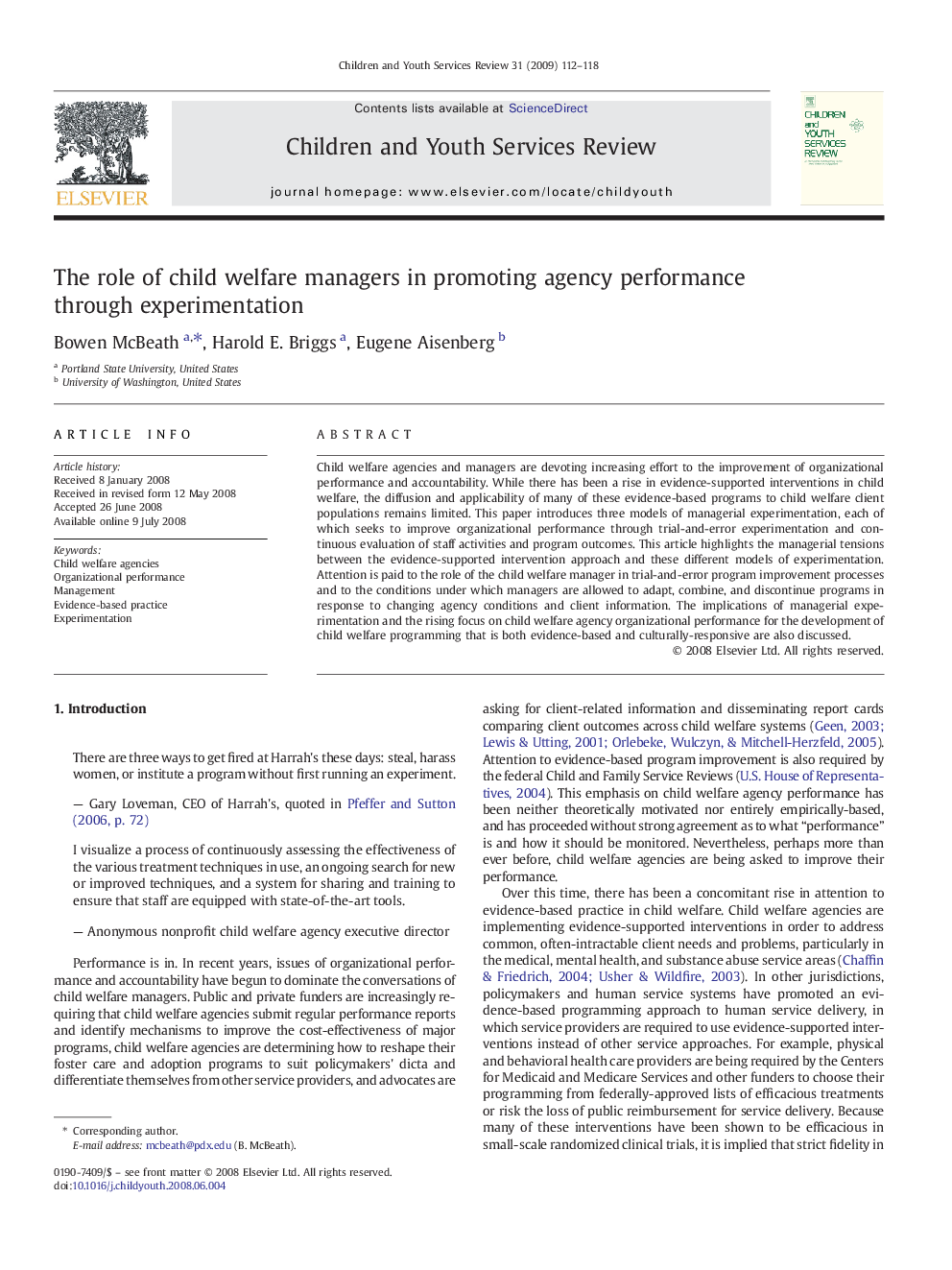| Article ID | Journal | Published Year | Pages | File Type |
|---|---|---|---|---|
| 347093 | Children and Youth Services Review | 2009 | 7 Pages |
Child welfare agencies and managers are devoting increasing effort to the improvement of organizational performance and accountability. While there has been a rise in evidence-supported interventions in child welfare, the diffusion and applicability of many of these evidence-based programs to child welfare client populations remains limited. This paper introduces three models of managerial experimentation, each of which seeks to improve organizational performance through trial-and-error experimentation and continuous evaluation of staff activities and program outcomes. This article highlights the managerial tensions between the evidence-supported intervention approach and these different models of experimentation. Attention is paid to the role of the child welfare manager in trial-and-error program improvement processes and to the conditions under which managers are allowed to adapt, combine, and discontinue programs in response to changing agency conditions and client information. The implications of managerial experimentation and the rising focus on child welfare agency organizational performance for the development of child welfare programming that is both evidence-based and culturally-responsive are also discussed.
